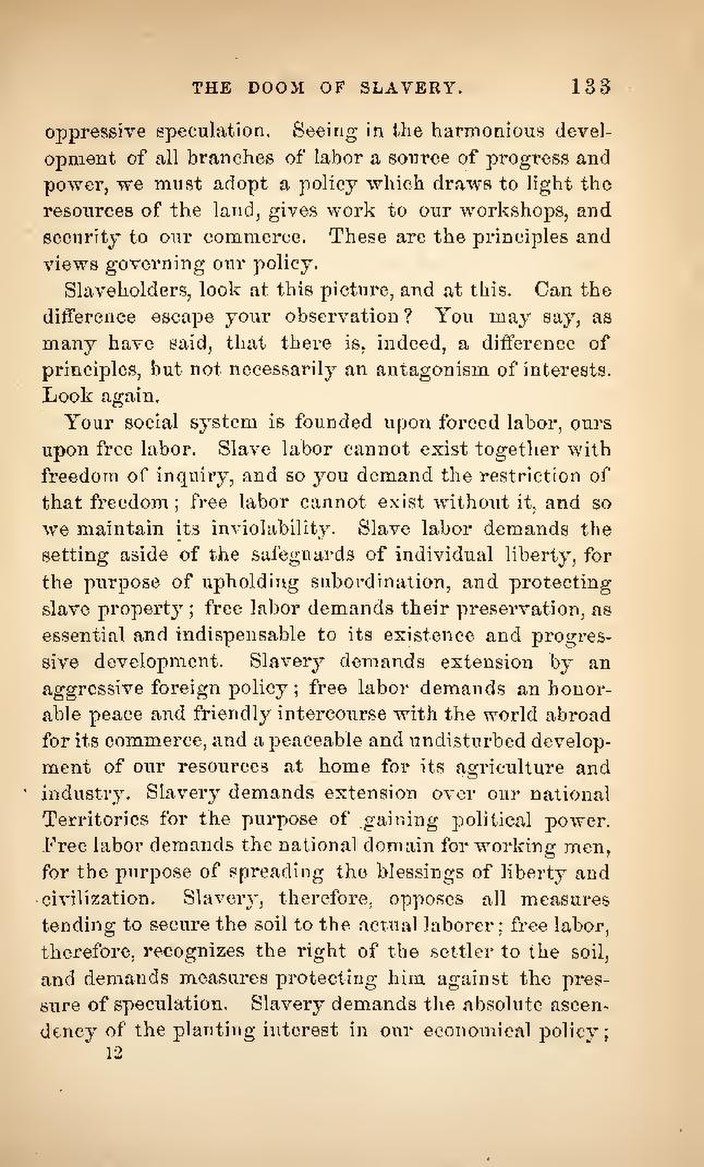oppressive speculation. Seeing in the harmonious development of all branches of labor a source of progress and power, we must adopt a policy which draws to light the resources of the land, gives work to our workshops, and security to our commerce. These are the principles and views governing our policy.
Slaveholders, look at this picture and at this. Can the difference escape your observation? You may say, as many have said, that there is, indeed, a difference of principle, but not necessarily an antagonism of interests. Look again.
Your social system is founded upon forced labor, ours upon free labor. Slave labor cannot exist together with freedom of inquiry, and so you demand the restriction of that freedom; free labor cannot exist without it, and so we maintain its inviolability. Slave labor demands the setting aside of the safeguards of individual liberty, for the purpose of upholding subordination and protecting slave property; free labor demands their preservation, as essential and indispensable to its existence and progressive development. Slavery demands extension by an aggressive foreign policy; free labor demands an honorable peace and friendly intercourse with the world abroad for its commerce, and a peaceable and undisturbed development of our resources at home for its agriculture and industry. Slavery demands extension over national Territories for the purpose of gaining political power. Free labor demands the national domain for working men, for the purpose of spreading the blessings of liberty and civilization. Slavery, therefore, opposes all measures tending to secure the soil to the actual laborer; free labor, therefore, recognizes the right of the settler to the soil, and demands measures protecting him against the pressure of speculation. Slavery demands the absolute ascendency of the planting interest in our economical policy;
